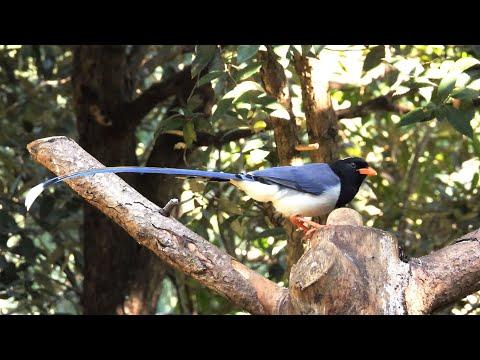Admiring the Exquisite Elegance of the Red-Billed Blue Magpie – Nature’s True Masterpiece
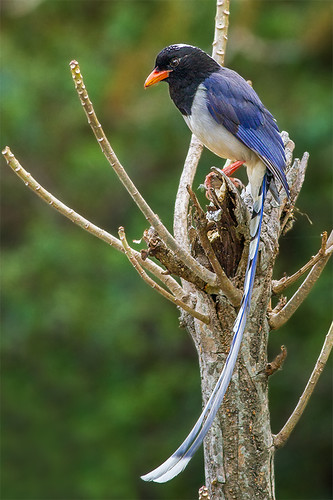
A vividly-colored inhabitant of lowland and foothill forests, gardens, and parks who is far more known for his rather raucous voice than the way he looks.
Meet the Red-billed Blue Magpie
Photo courtesy of Charles Lam/CC BY-SA 2.0
The Red-billed Blue Magpie, scientifically known as Urocissa erythrorhyncha, belongs to the crow family Corvidae. This bird is similar in size to the European Magpie but possesses a notably longer tail. Its head, neck, and breast are black, adorned with bluish spotting on the crown. The shoulders and rump exhibit a slightly duller shade of blue, while the underparts display a greyish-cream coloration.
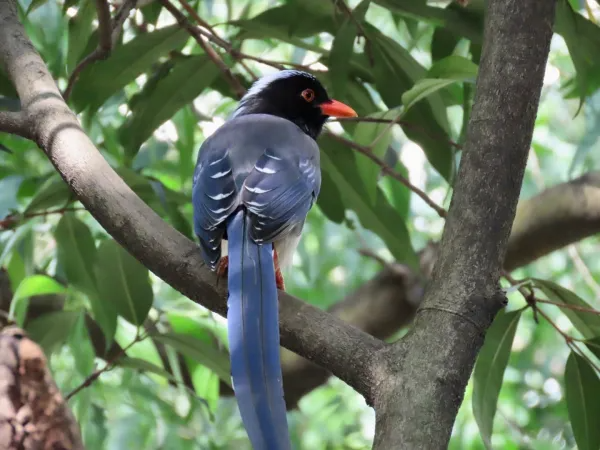
“red-billed blue magpie” by Toby Y is licensed under CC BY 4.0.
The bill, legs, feet, and the area around the eye are all strikingly bright orange-red, although the intensity of the red can vary within its range, ranging from nearly yellow in some individuals.
The distinguishing feature of this species is its long tail, which is vibrant blue with a broad white tip.
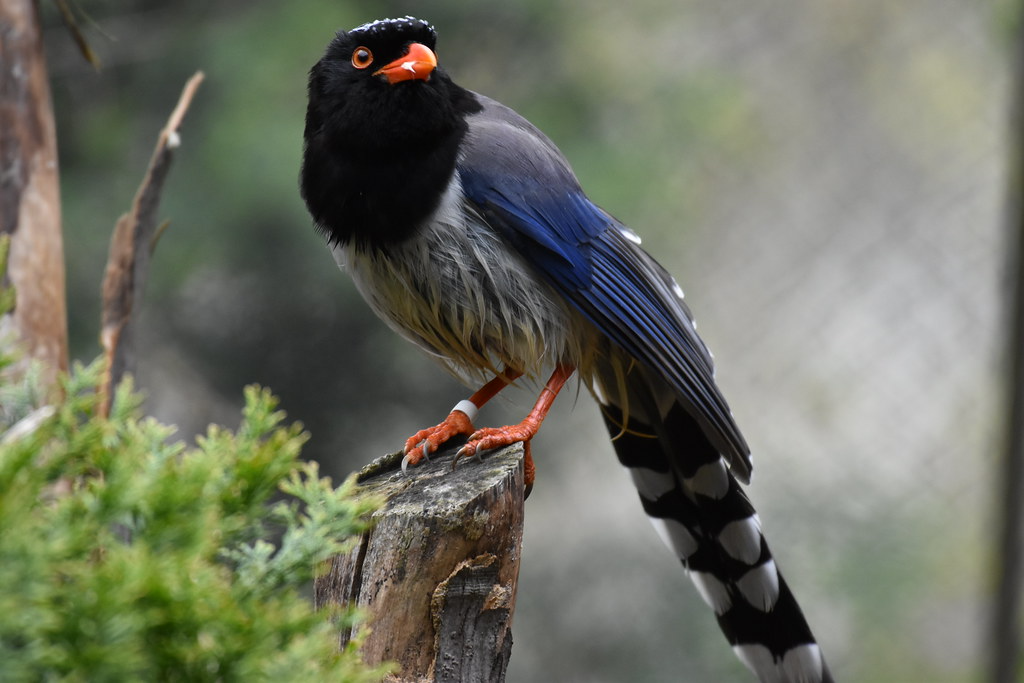
“red-billed blue magpie Cleveland Zoo 5.4.19 DSC_0302” by lwolfartist is licensed under CC BY 2.0.
The Red-billed Blue Magpie inhabits a broad range extending from the western Himalayas eastwards into China and Vietnam.

“Red-billed Blue Magpie | Timlipani, Uttarakhand, India” by soumyajit nandy is licensed under CC BY-SA 2.0.
It primarily resides in evergreen forests and scrubland within hilly or mountainous regions.
Photo courtesy of Savithri Singh/CC BY-SA 4.0
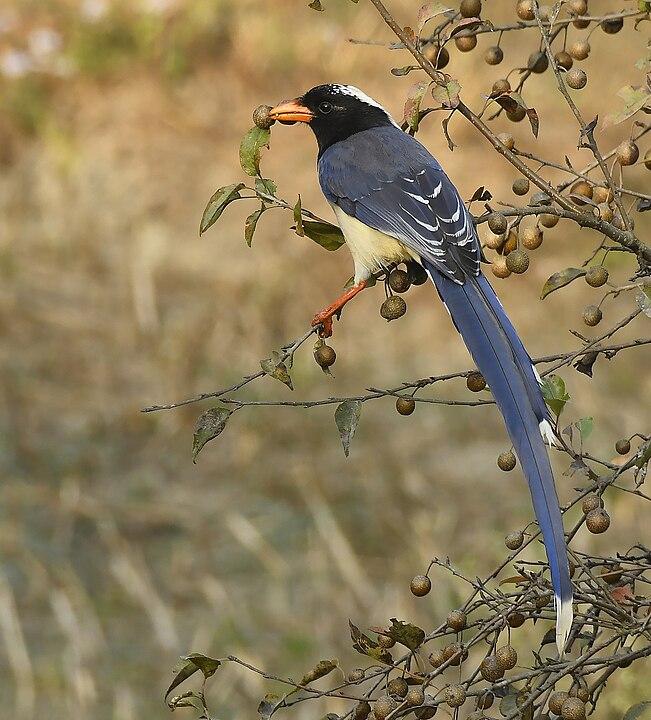
This magpie forages for food both in trees and on the ground. Its diet consists of a wide variety of items, including invertebrates, small animals, fruits, and some seeds. It is known to pilfer eggs and young chicks from nests as well.
Photo courtesy of (cropped) Sunil Sharma/CC BY-SA 4.0
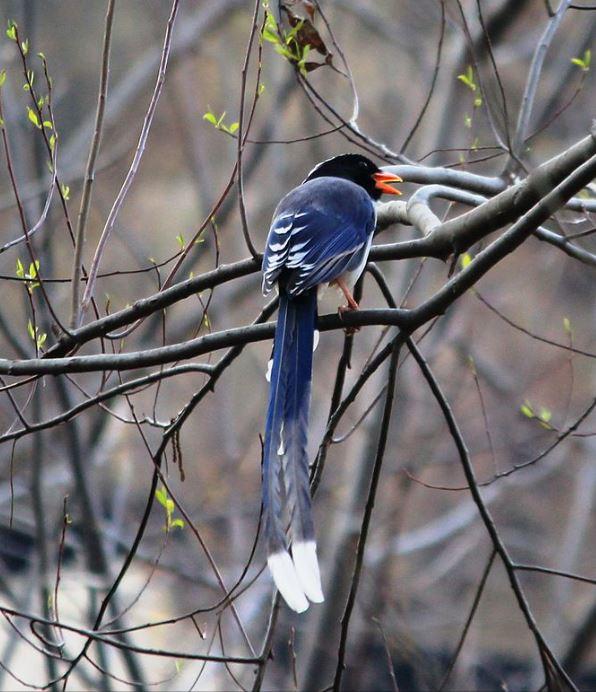
Vocal mimicry is a prominent feature of this species, and it produces a diverse range of calls. Common vocalizations include a grating rattle and a high-pitched whistle resembling a flute.
“red billed blue magpie” by T_Monk is licensed under CC BY 2.0.
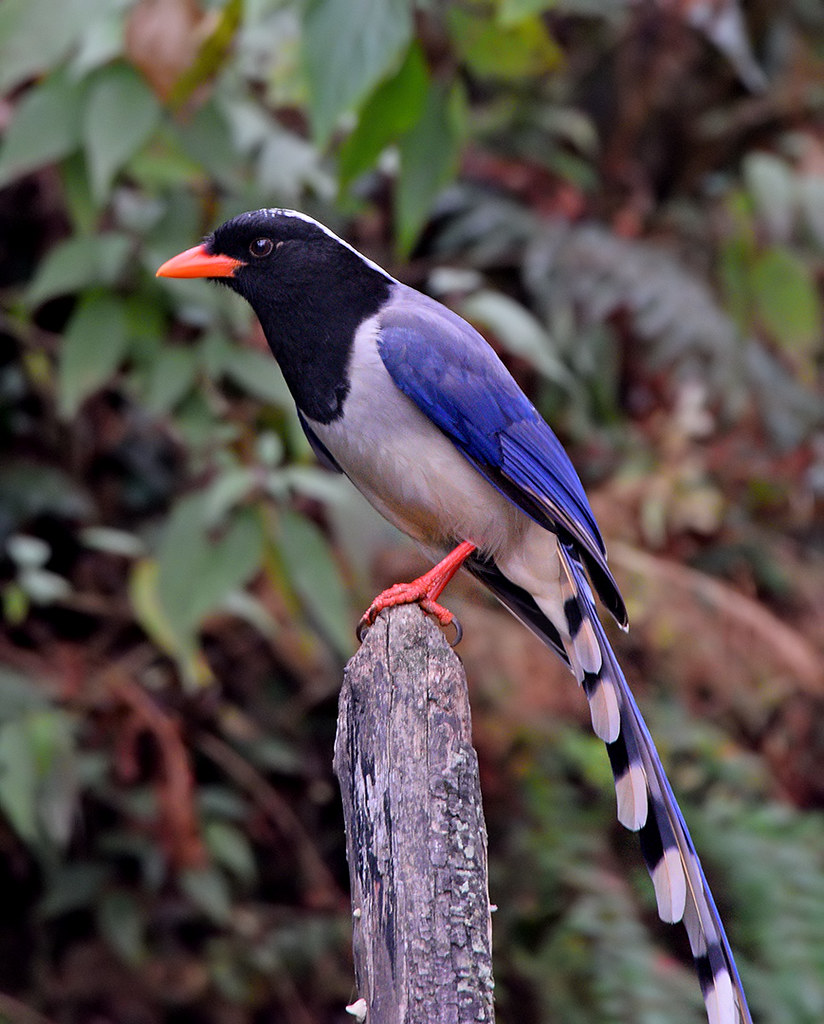
The Red-billed Blue Magpie constructs relatively shallow nests in trees and large shrubs. The usual clutch size consists of three to five eggs.
“Red-billed Blue Magpie” by Koshyk is licensed under CC BY 2.0.
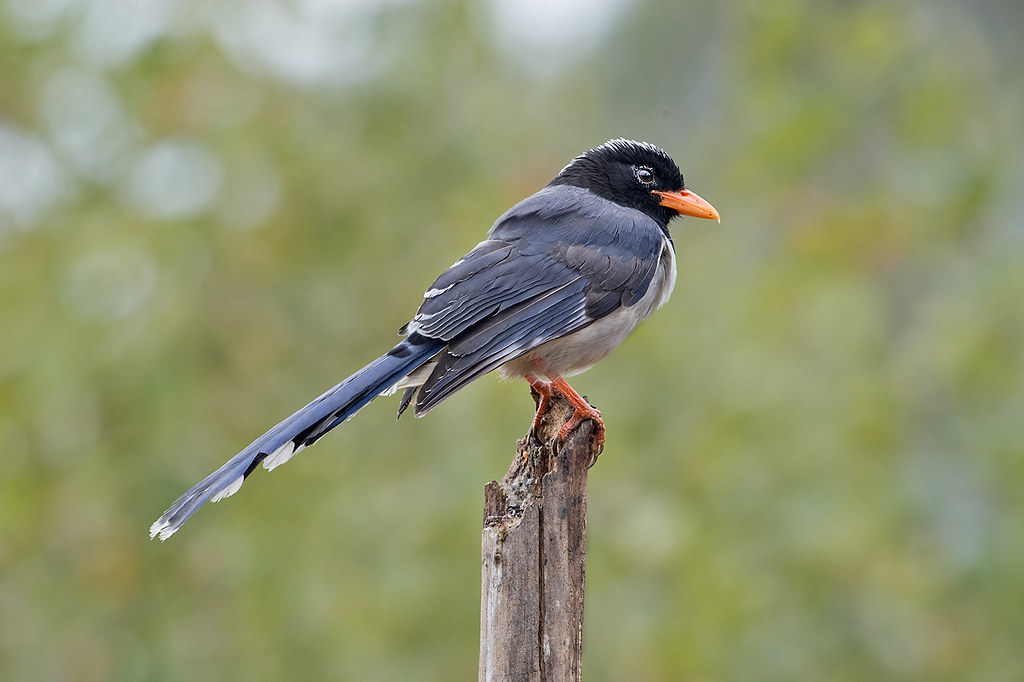
This bird is regarded as of Least Concern on the IUCN Red List.
“red-billed blue magpie” by Ulf Liebal is licensed under CC BY 4.0.
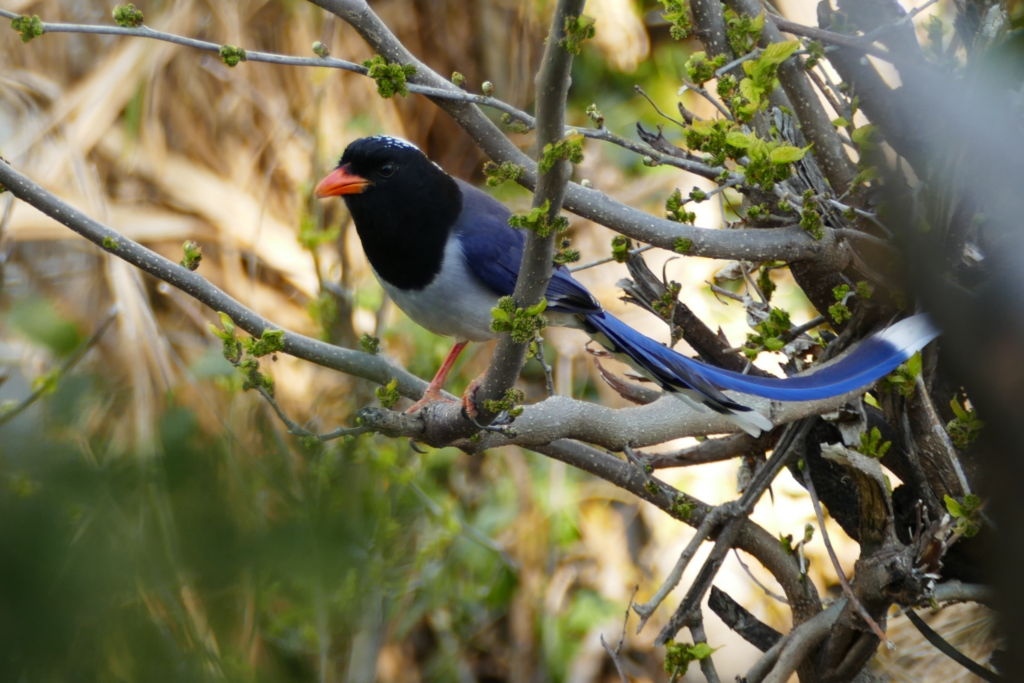
Check this bird out right here below:
